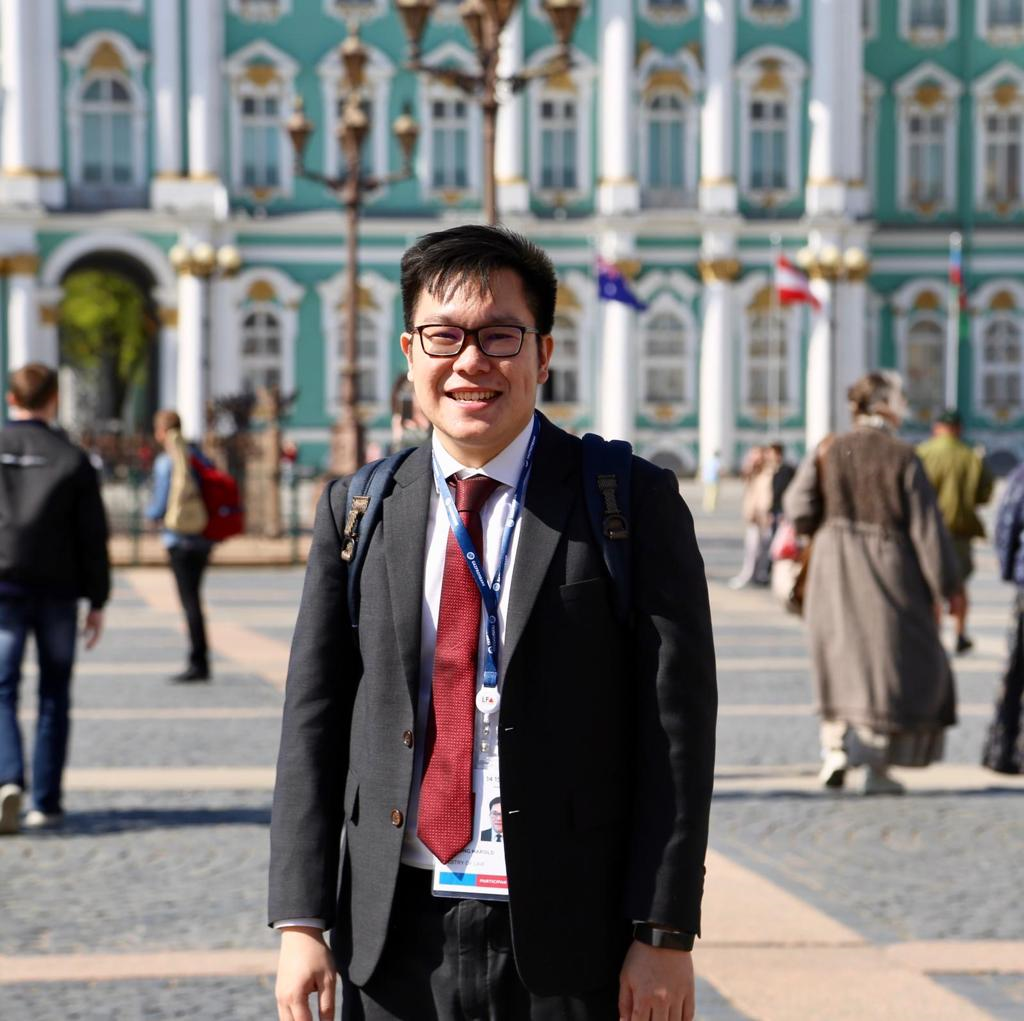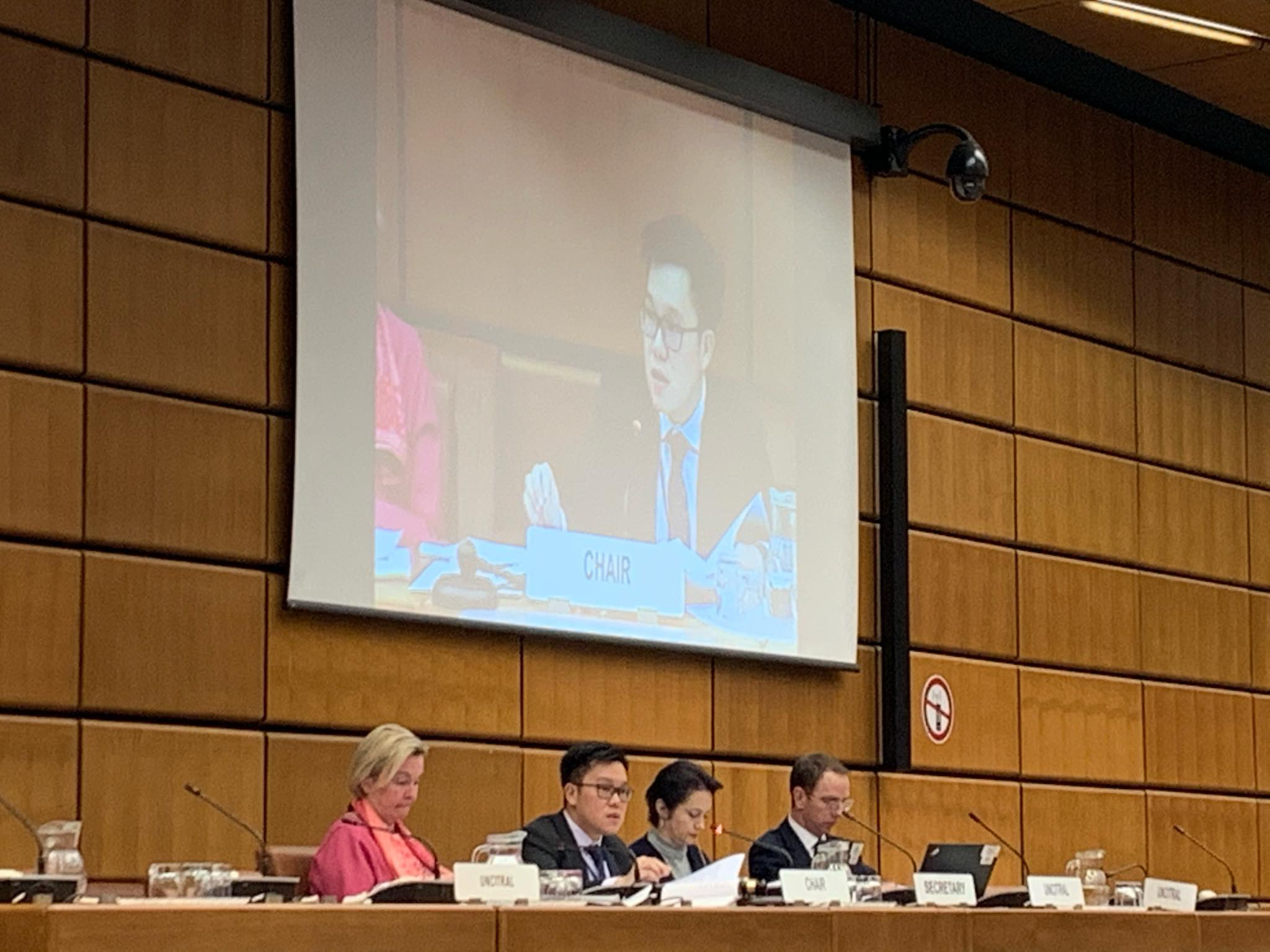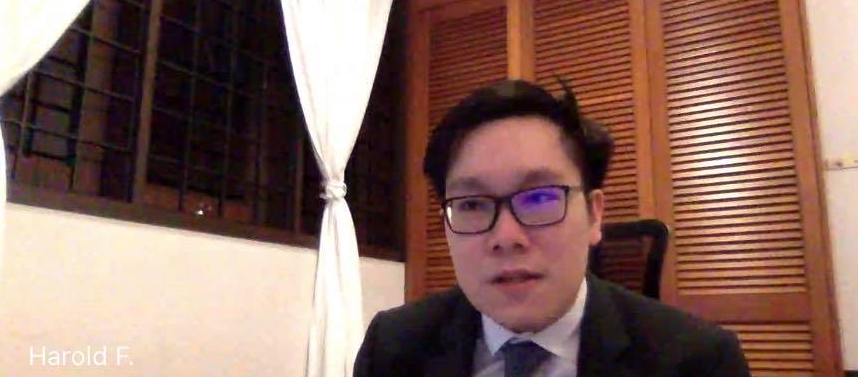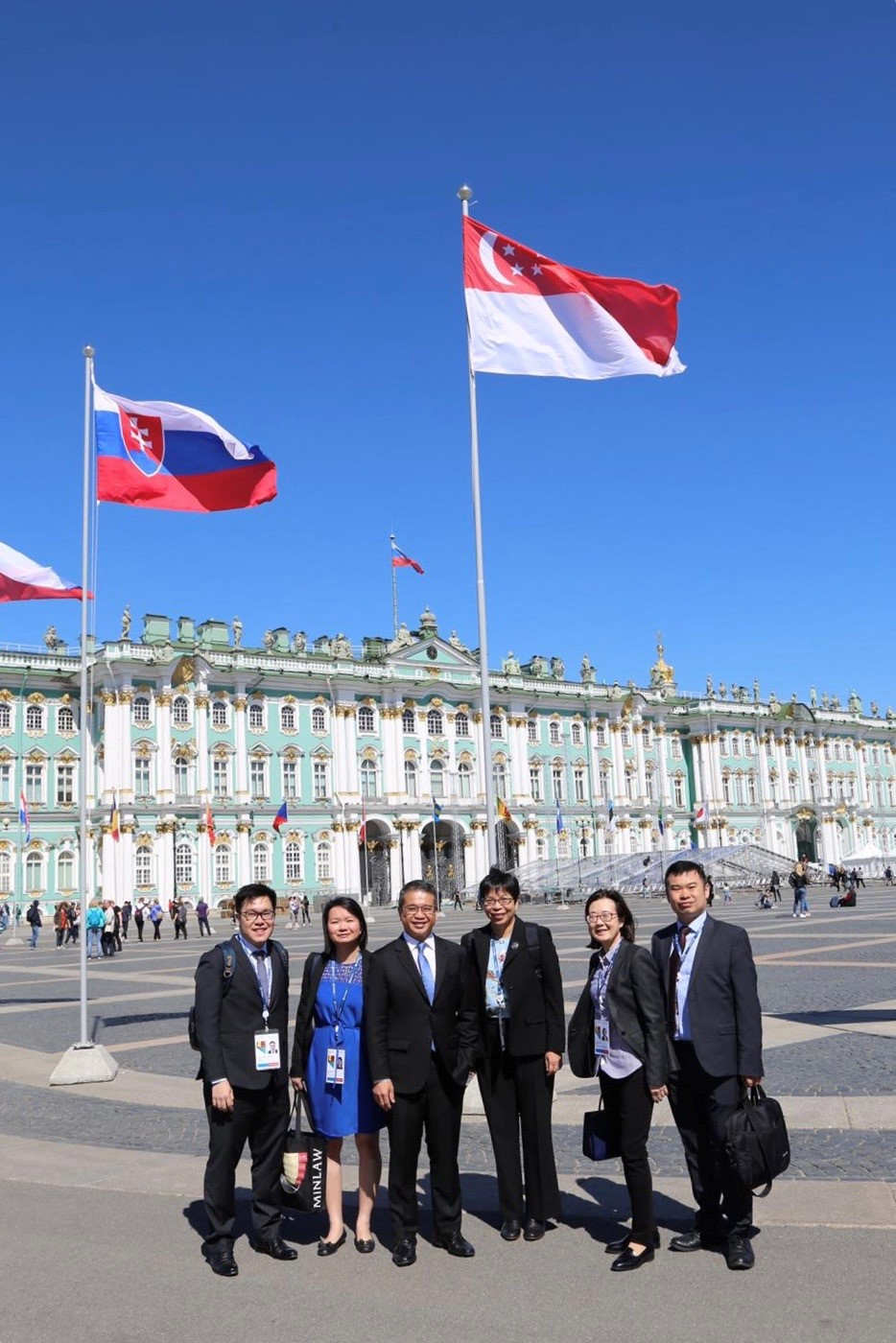From Arguing to Shaping Our Laws
From Arguing to Shaping Our Laws
Insight MinLaw goes behind the scenes to uncover stories about how the work we do impacts you.
Fresh out of law school, Mr Harold Foo dived into work at one of Singapore’s largest law firms, where he was a litigator in banking and financial disputes, and debt restructuring and insolvency. His work ran the gamut from representing his clients in court to drafting bespoke restructuring agreements for listed companies with their creditors.
When presented with the opportunity to be involved first-hand with the reforms to Singapore’s insolvency ecosystem, Mr Foo made the difficult decision to leave practice to join the Ministry of Law in 2016.
Enhancing Singapore’s laws and legal frameworks

In the past four years, the Assistant Director in the Policy Advisory Division has had a myriad of experiences, from conceptualising and implementing legislation to engaging local and international stakeholders across various projects.
“It is immensely gratifying to be able to contribute positively through the work that I do,” he says, “I have been very fortunate to work on developing certain areas of law, and to ensure such laws meet the legal, policy and practical considerations to advance access to justice, the rule of law, and the economy and society.”
He was part of the team that helped bring to life a mammoth piece of insolvency legislation – almost 600 pages – that modernised Singapore’s approach to individuals and companies in financial trouble. He has also flown Singapore’s flag high at UNCITRAL – the United Nations Commission for International Trade Law – where he was elected as Chairperson of the specialised working group for insolvency law. He is believed to be one of the youngest delegates to hold this appointment.
In addition to his work in insolvency, he has also contributed to other projects that aim to enhance Singapore’s laws and frameworks, with a view to benefitting the economy. These include increasing the use of Singapore law as parties’ choice of governing law in commercial contracts and strengthening the corporations’ framework to attract international companies to anchor business activity here.
Why insolvency?

While insolvency may be unfamiliar to some, Mr Foo views it as an intellectually challenging and rewarding area of law. “Insolvency frequently involves complex legal issues, as well as business and practical considerations, which cut across the areas of contractual rights, property rights and public policy,” he says.
“More importantly, it is an area of law that sees immediate and tangible outcomes given its impact on both individuals and companies trying their best to overcome severe financial distress. We aspire to preserve value for all the parties who are involved, such as debtors, creditors, employees and shareholders. This is an area that has a significant impact on peoples’ daily lives, and this alone, gives a great deal of meaning to the work.”
Modernising the insolvency regime
A key highlight thus far in his public service career has been the commencement of the omnibus Insolvency, Restructuring and Dissolution Act (the “IRDA”) on 30 July 2020. The IRDA amalgamates Singapore’s corporate and personal debt restructuring and insolvency processes, previously in two separate statutes, into a single piece of legislation.
The golden thread connecting the provisions in this massive statute – together with its 48 pieces of supporting subsidiary legislation – is ensuring that Singapore’s insolvency laws remain progressive and modern. This supports businesses and individuals faced with financial distress and enhances Singapore as an international centre for debt restructuring.

Mr Foo with his colleagues from the Ministry of Law.
He reflects: “The IRDA is a landmark legislation that has changed the face of Singapore’s insolvency legislation. Its introduction is timely, given the unprecedented spread and severity of the COVID-19 pandemic that has devastated businesses, and in turn, individuals.”
New features introduced in the Act go some way toward this. These include restrictions on the termination or modification of contracts solely on the basis that a company attempts to rehabilitate itself, and third party funding that allows claims, which would otherwise not be pursued due to a lack of funds, to be brought against persons who remove value from a company prior to insolvency.
He adds: “Looking back, the process of bringing the legislation to fruition was immensely challenging, but nonetheless satisfying. The end product appears as strings of sentences in the statute. However, that merely scratches the surface insofar as the time and effort, depth of analysis and extent of consultation invested to ensure the provisions and on-the-ground practice complement each other harmoniously.”
Flying the Singapore flag

Mr Foo chairing the 56th session of UNCITRAL Working Group V (Insolvency Law) in Vienna, Austria in December 2019.
In December 2019, Mr Foo was elected as Chairperson of United Nations Commission on International Trade Law (“UNCITRAL”) Working Group V (Insolvency Law) for its 56th Session. The working group comprises more than 150 insolvency experts from all over the world, across Governments, academics, and practitioners. UNCITRAL, established by the United Nations Generally Assembly, plays an important role in furthering the progressive harmonisation and modernisation of the law on international trade.
The working group is currently focused on the insolvency of micro, small and medium enterprises, which are frequently the lifeblood of economies. By tailoring the insolvency processes for such companies, the intention is to support more effective resolution of financial distress.
“This is meaningful work that will hopefully have long lasting and positive impact on global economies,” Mr Foo notes, “I am incredibly humbled and honoured to have been given the opportunity to contribute to this, in my own small way.”

Mr Foo chairing an online informal consultation session with UNCITRAL Working Group V in May 2020, in light of the public health concerns and travel restrictions arising from the COVID-19 pandemic.
In addition, as part of his broader work, Mr Foo has also been involved in various bilateral and international engagements that aim to further Singapore’s interests. For example, in May 2019, he was part of the Singapore delegation to the St Petersburg International Legal Forum, which provided attendees with a better understanding of Singapore’s legal system and Singapore law.

Flying the Singapore flag high in St Petersburg, Russia in May 2019. Mr Foo with Minister for Culture, Community and Youth, and Second Minister for Law, Mr Edwin Tong, and colleagues from the Ministry of Law and Ministry of Foreign Affairs.
Giving back

Today, while Mr Foo no longer prepares arguments for the courtroom, he nevertheless analyses and argues points of law in the classroom with future legal eagles. As a facilitator for the preparatory course for the Singapore Bar Examinations, he helps aspiring lawyers as they seek to embark on their careers in the legal profession.
He says: “I view it as a privilege to be able to use my experience and expertise to help younger lawyers in their journey, just as I have benefitted and continue to receive guidance and wisdom from others.”
Last updated on 27 August 2020
Other stories you may like:
Advancing Mediation: From Practice to Policy
Protecting Your Right to Copyright

